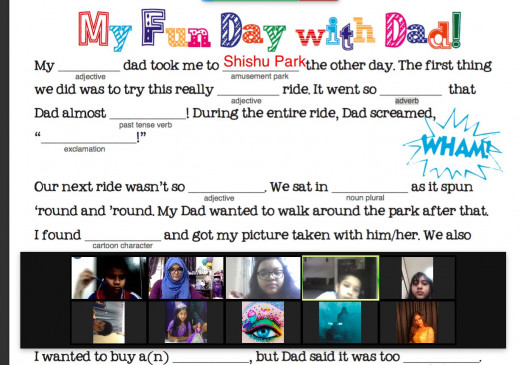6 Tips for Taking Useful and Effective Online Classes

Due to the pandemic COVID-19, all the educational institutes are closed to maintain social distance. However, many schools have already started conducting online classes. As a teacher, probably you are embarking on the adventure of online lessons, but taking useful and effective online classes is not simple, and pedagogy is not innate in everyone.
Many teachers are facing difficulties on how to conduct online classes. If you are one of them, then this article aims at providing you the best knowledge on how you can take useful online classes.
Equipment
For starters, how important is the material for an effective online course? Having quality equipment, such as a microphone, a webcam, or a good internet connection, are essential when you want to start taking useful and effective online classes. Indeed, this increases the quality of the lesson considerably. The fluid exchange between the student and the teaching is significant for the smooth running of the class. When you are offering the right image and excellent sound through a good internet connection, your student will have more fun attending your classes online. A real effort on your part is implemented, which will pay in the long term by the loyalty of your students who appreciate your professionalism and the quality of your services, which does not decrease. Thus you show your commitment to the progress and success of the student.
Practice
You have to keep in mind that lessons are done online. Even with teaching experience, communicating with the student through a screen can be a bit confusing at first. Indeed, there are additional challenges, especially to get a message across to the student. Behind your computer, you tend to remain static, for example. To maintain your pupil's attention, you must then stay dynamic, speak loudly, with your hands, vary the intonations of your voice, keep the pupil's gaze, etc. You must also pay attention to your posture, stay straight without looking uncomfortable, you have to find a happy medium. The goal is to feel comfortable, to be satisfied with what you are saying, and to get the message across.
It may not all seem very natural at first. The solution to be ready before your first lesson is, therefore, to train. You can ask your colleagues, friends, and relatives to give them a short class, for example. They will tell you the points that you can improve. You can also film yourself and judge yourself. On the other hand, having an outside opinion is always more beneficial.
Student's Need
"Analysis" is the first real step to designing your lesson. This is to identify and understand the needs of the student. Your students will all have different strengths and will know in different ways. By calling on you individually, the student seeks to have specialized support, whether academic or not. You must, therefore, model your courses according to their need. We can understand without any difficulty that the final objective of this is for the student only. But we must deepen and seek to know more. Then, afterward, try to identify what type of pedagogy would be best to achieve it while enjoying the classes. This can be through film clips, books, games, listening to podcasts, or more traditional teaching with exercises.
Besides, in the case of teaching, it is also important to rely on the feelings and opinions of the parents. For this, you can make an appointment with the student (and / or the parents). The goal is to meet and discuss the student's expectations as well as his difficulties or his purpose. You will then be able to identify the needs and work to develop the best teaching strategy with the right method to adopt.

Teaching Method
Finding the right teaching method is not easy. There are many factors to take into account, such as the subject, the level of the student, motivations, and objectives, the documents you have at your disposal, etc. The goal is to consider everything and get out of it. Then develop your own teaching strategies for your pupils' needs. But above all, it is necessary to set with the student a real concrete objective, which is attainable, measurable over time, and it must be specific. This is called a SMART goal. It will act as a common thread throughout the monitoring and will allow the student not to lose motivation. The learning methods are varied. You may choose cognitive or functional strategies that are learning through experience. Or more constructivist learning where one pushes the student to think and explain his reasoning. Or, on the contrary, rather instructive, the pupil will assimilate the information more mechanically by learning by heart.
Evaluating learner is fundamental. The student must be able to situate his progress and visualize where he concerns his final goal; this allows him not to lose sight of the objective and not to be discouraged as well as to see the work that he has left to provide. But it is also beneficial for the teacher because he has the possibility of identifying the acquired and not acquired points and thus to base his next lessons on it. To do this, determining the success criteria is essential.
It is also essential to use your own experience. If you have a minimum of teaching experience, use the documents appreciated by your former students, but above all, take their feedback into account. Feedback is the best way to improve and to know if you need to change specific points in your method.
Class Content
Once your strategy is in place, you need to apply it and prepare the rich course content. You need to collect documents and materials. The more diverse the content, the more interested, curious, and eager, the student will be to learn. Indeed, he will tirelessly, and it will be more stimulating for him. Besides stimulating several senses and types of memory allows better learning, and therefore, your lessons will be of better quality. For example, if you take language classes, you have at your disposal a vast range of different content and support. You can swing between songs, film clips, podcasts, historical documents, or even slightly more classic exercises. Do your research and try to find something original, out of the ordinary, and that might interest your student.
The advantage of useful and effective online classes is that it is effortless to exchange any document instantly. Many features on the platform allow interactive and very stimulating teaching for the student. It is strongly recommended that you master the classroom. Thus the lessons will be fluid, productive, and pleasant for the student.
Evaluate Classes
Having feedback from your different students is vital for the excellent progress of learning. This will allow you to know their feelings, their development, their desires, their new goals to reach. Feedback is essential to understand what the student expects from his teacher and to ensure that he has what he is looking for during lessons or on the contrary to refocus lesson content if he feels that the teacher is away from the goal a little. You will then have the opportunity to gather opinions from several different learners. Analyzing them, comparing them will lead you to conclude to improve your pedagogy and therefore adjust to the needs of each of your students.
For this, doing a reasonably regular assessment where the student has the opportunity to express himself freely on his impressions is a good idea. It doesn't have to last for hours; just a few minutes are enough and will make the difference afterward.
On the Class gap platform, you can assess the student's level as the lessons progress, give recommendations, and take stock of what has been learned and what remains to be seen. All this directly in the collaborative space. Likewise, the student can record your performance. It is a simple system allowing both the student and the teacher to improve and situate themselves. Again, it is also possible to ask at each end of the class the points that the student would like to address during the next lesson. You will then know precisely how to prepare. Yes, evaluating online lessons one of the prerequisites of effective online classes.
This content is accurate and true to the best of the author’s knowledge and is not meant to substitute for formal and individualized advice from a qualified professional.
© 2020 Md Akbar Ali









